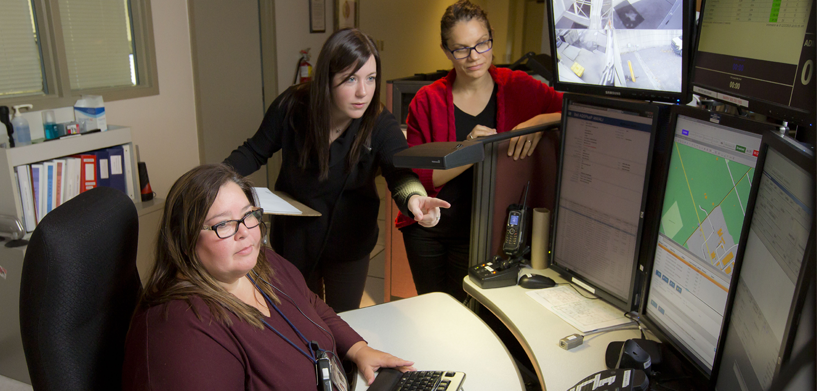They’ve been called “the most important people you’ll never meet,” and this week is set aside to honor them. April 11-17, 2021 is National Public Safety Telecommunicators Week, a time to celebrate and thank those who dedicate their lives to serving the public. Even more so after the tumultuous events of the last year, public safety telecommunicators (PSTs) are recognized for the vital roles they play in safeguarding people in their communities.
PSTs, or 9-1-1 dispatchers, are more often than not the first point of contact when an emergency occurs. Throughout 2020, they were, to quote Firehouse.com’s Barry Furey, “the faceless voices on the front lines of our war against COVID-19.”
The Respect They Deserve
PSTs have worked throughout the pandemic, classified as essential workers. And, indeed, they are. Dispatchers have dealt with the constant change of emergency response protocols over the last 12-13 months, as well as surges in domestic violence calls, mental health crises, and serious illnesses among people quarantined in their homes, according to the National Emergency Number Association (NENA).
Those dispatchers never wavered.
To recognize the important work of PSTs, U.S. Representatives Brian Fitzpatrick, R-Pennsylvania and Norma J. Torres, D-California on April 1, 2021 reintroduced the Supporting Accurate Views of Emergency Services Act (911 SAVES Act), bipartisan legislation to reclassify 9-1-1 dispatchers from “Office and Administrative Support Occupations” to “Protective Service Occupations” in the Office of Management and Budget’s Standard Occupational Classification catalog.
Fitzpatrick and Torres said in a statement, “The reclassification would cost nothing and more accurately reflect the nature of America’s 100,000 public safety telecommunicators’ work.”
NENA has called on every member of Congress to cosponsor the legislation to show their support for “the unsung heroes of public safety.”
Home-Based Operations Possible
In the world of emergency dispatch, working remotely may seem impossible – but it’s not. The job never stops, not overnight, on the weekends, and especially not on holidays, but 2020 showed us that with technology, even the most important communications functions can be accomplished from home.
Computer-aided dispatch systems with web-based interfaces and mobile capabilities mean that public-safety answering point operators can work from anywhere. Remote emergency dispatch also relies on technology such as the cloud, virtual private networks, and faster data speeds.
Two recent examples are the City of Alexandria, Virginia and the Arlington County Emergency Communications Center.
To meet the needs of public safety professionals while keeping in mind their well-being, Hexagon recreated its software training classes to be delivered virtually. Click here to see upcoming courses.
Thank you
This week and every week, we honor and thank you – the men and women behind the scenes who are a source of peace in a storm of fear and uncertainty, and whose actions save lives – all year long.
Enjoy this post? Subscribe to our blog and have industry insights delivered right to your inbox each week. Subscribe now.















